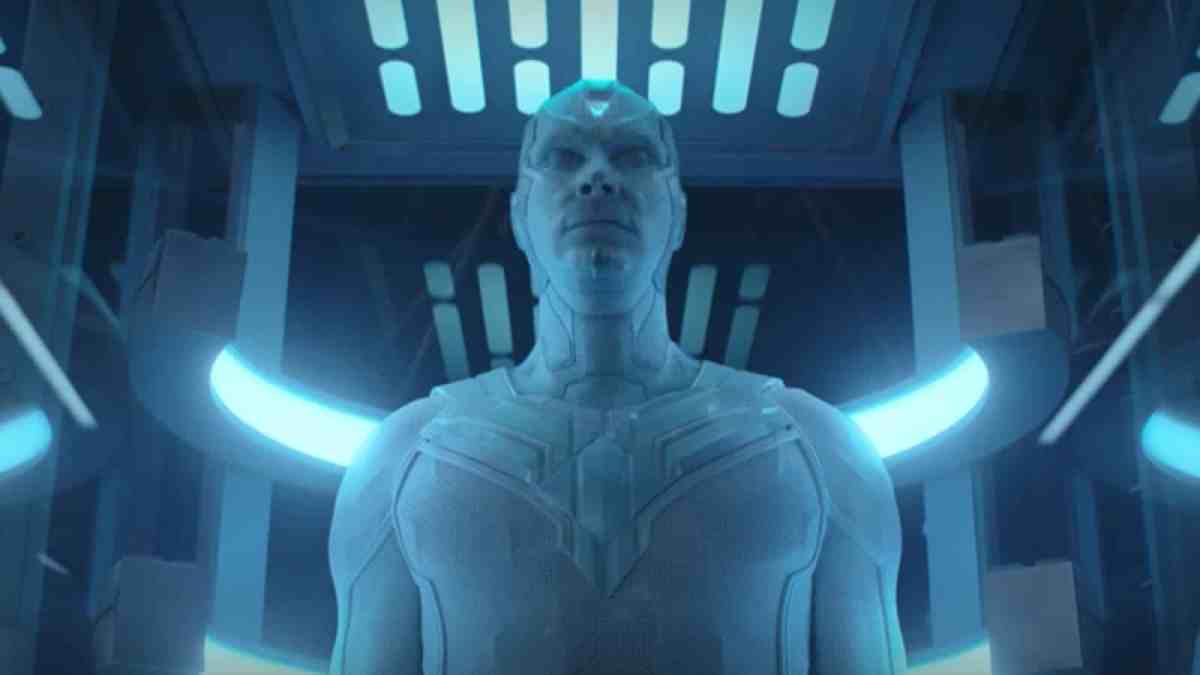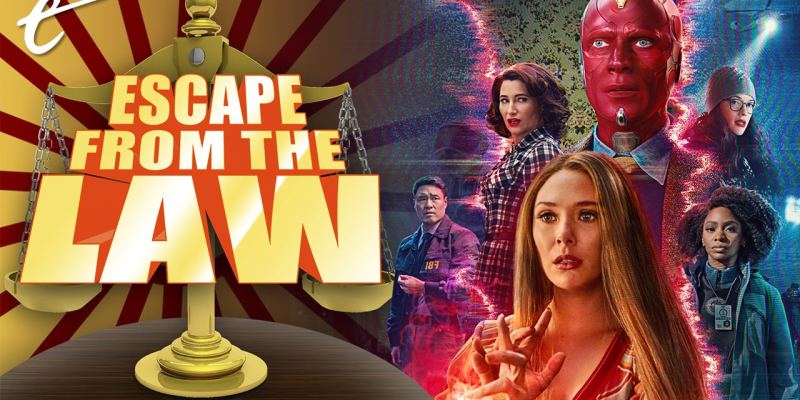This discussion of, uh, corpse law and theft contains massive spoilers for WandaVision.
Holy clone, Batman! This week’s WandaVision ended with a hell of a cliffhanger. The first big reveal is that the Vision featured in this show isn’t the Vision we’ve come to know and love, but was instead created — seemingly out of nothing — by Wanda. That revelation was immediately followed by a reveal that government bad guys (SWORD) had reassembled the original Vision, but without his… Vision-ness, resulting in the obscure “White Vision,” who, until now, had only been seen in the pages of the also-obscure West Coast Avengers.
The legal implications of these WandaVision reveals are fascinating. So let’s dive in.
What Does the Law Say About Copies and Revived Corpses?
Are there any cases involving an aggrieved widow who creates a near-perfect copy of her husband, only to find that the government has revived the corpse of the original, but without any of his memories, resulting in a soulless monstrosity?
Uhh… no. And to be clear, I did my homework on this one.

But surely the law must be able to provide us with some guidance here… right?
Absolutely. Let’s break it down piece by piece. We can start with White Vision and a straightforward legal question: Was it illegal for the government to steal and experiment on Vision’s body? The answer is, “It depends.”
More specifically, it depends on answers to four key questions:
- Whether the law would treat Vision’s corpse as human remains or as a turned-off machine
- Where the body was located when SWORD took possession
- How SWORD obtained Vision’s body
- Whether Wanda and / or Stark Industries consented to SWORD’s actions
Let’s unpack this further. Believe it or not, there is an entire area of law dedicated to corpse rights and body snatching. Most (or all) states have laws against grave robbing and corpse desecration. For example, in New York (where Vision lived prior to his death), it is illegal to “remove the dead body of a human being, or any tissue, organ or part thereof from a grave, vault, or other place” with the intent to sell or dissect the body, or based on malice.
This brings us to the first threshold question — whether the law would treat Vision’s remains as a human body or as spare parts. Corpse desecration laws only apply to human remains. Thus, if Vision’s corpse is classified as property, the laws would not apply, and our attention would shift to a more traditional (and more tractable) set of laws relating to property. However, I note at the outset that the question of whether Vision’s corpse is viewed as human is distinct from the question of whether Vision would be treated as human while he was alive. The latter proposition implicates a variety of thorny questions about who is entitled to rights and why. The former question, however, is a more straightforward policy question.

Laws regarding corpse theft and desecration arise from two motivating principles: concern for health and sanitation, and concern for the emotional well-being of a corpse’s survivors. The law generally does not recognize a personal right to have one’s corpse treated in a particular way after death, as is most aptly demonstrated by Shipley v. City of New York, in which a family was denied relief after a city medical examiner stole a teenager’s brain — a fact the family only discovered after the teenager’s classmates viewed the brain on display in a jar during a class field trip to the morgue (and yes, that case is currently in the lead for the most bonkers case I’ve found this year). Thus, the fact that Vision may not have had rights while he was alive does not tell us anything about how his corpse should be treated after death.
To answer that question, we have to consider whether the principles that motivate corpse desecration laws would apply to Vision in WandaVision. While this question could go either way, I think the best interpretation would hold that these kinds of laws would prohibit the theft of Vision’s body. Obviously, the concern for sanitation does not apply to Vision, since he does not have organic components. The concern for his survivors, however, applies with full force, given that Vision had friends and family who cared for his well-being.
The fact that the two motivating principles pull in different directions requires an inquiry into which principle is more dominant. Ultimately, the cultural and emotional significance of death, in tandem with the fact that most corpse laws are not time-limited, leads me to think that the law’s primary motive is to protect loved ones from emotional distress. Thus, I would argue that it would be unlawful for one to steal Vision’s body.

But that conclusion is just the first step. The laws against corpse theft are not absolute, as government officials can take possession of a body for purposes of conducting autopsies or other investigations. Likewise, the laws against corpse theft only apply once a body has been interred or otherwise “deposited while awaiting burial.” This leads to a host of questions relating to how and where SWORD took possession of Vision’s body and, in particular, whether SWORD recovered the body themselves, or whether they stole the body from the Avengers.
If they recovered the body themselves, they would have had to account for international laws and export/import controls regarding the treatment of corpses, since Vision died in Wakanda. While there are laws and treaties regarding the transportation of corpses, it is unlikely those laws would apply, since, unlike grave robber laws, those laws and treaties are primarily concerned with safety and sanitation. Thus, whoever transported Vision’s body would need approval from both Wakanda and the United States to transport $3 billion worth of Vibranium and incredible quantities of destructive power across international boundaries.
To simplify the issues, we can make the fair assumption that the Avengers arranged for Vision’s transport and used their status and power to cut through (or ignore) any red tape — a task that was probably not all that challenging given that, at the time, the world was dealing with the immediate consequences of “the snap.” That still leaves open the question of how SWORD obtained the body from the Avengers.

WandaVision has led us to believe that Maria Rambeau — whom we know to be trustworthy — was in charge of SWORD at the time Vision died. This raises the distinct possibility that the Avengers voluntarily turned Vision over to SWORD, perhaps based on an assertion that SWORD would help the Avengers reassemble Vision. If that’s what happened, there can be no accusations of wrongdoing (at least from a corpse theft perspective), and we can tie up this question with a nice bow. Of course, WandaVision has also led us to believe that SWORD is a government institution, which means it would be immune from prosecution under state laws, even if it had stolen the body.
What makes WandaVision interesting is that it’s not quite like anything we’ve seen before. My analysis this week is just the tip of the iceberg, as this week’s episode raises countless additional questions: If a clone appears out of nowhere, which version, if any, can claim to possess the original’s rights or property? Does the answer change if you know which one is the clone and which is the original? Would a clone have the same marital rights as the original? Would the spouse of a cloned individual have obligations to a clone? If Wanda lifts her hex, are the affected individuals entitled to any property they may have earned while transmogrified? If Vision wronged someone while he was alive, but then died without any property, would the victims be entitled to recover a piece of Vision’s Vibranium in lieu of money damages?
I guess we’ll just have to tune in to WandaVision next week to find out. Barring that, we’ll have to wait for Marvel’s resident superhero lawyer Jennifer Walters (She-Hulk) to take the case. Of course, her show doesn’t debut until sometime in 2022. The wheels of justice turn slowly indeed.
